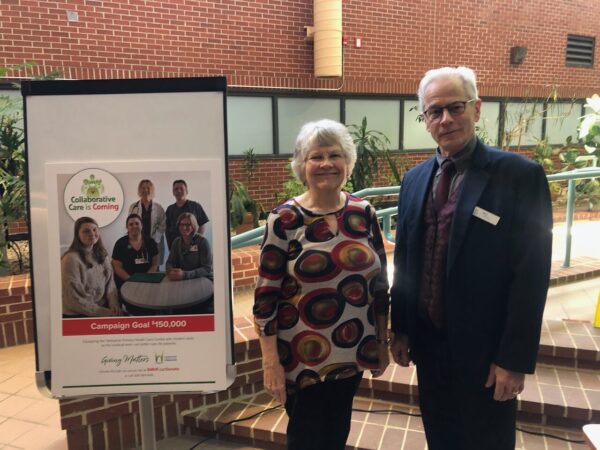
Mount Allison Students’ Union president Jon Ferguson has long since been concerned that the way COVID guidelines are written makes them difficult to apply to student life, and now that Sackville is in the orange phase for the first time since most students arrived back in town, the perennial issue is back.
Ferguson says the department of Post Secondary Education, Training and Labour (PETL) and Public Health, “need to be doing more to consider what student life is like and provide guidelines that are clear for students.”
One of the rules Ferguson points to is the two-household bubble.
“That’s something that worked great when we were first reopening,” he says. “However now, in the context of a university town that’s got almost 2000 students here in person right now, then the two-household bubble thing doesn’t necessarily work.”
The rule might be easily applicable to certain off campus student situations, he says, like say a small group of friends living together who may choose to bubble with another group of friends living together. But it leaves out a lot of others for whom the rules do not easily apply.
“There’s lots of other students that, for example, say they’re living with one roommate, and that roommate is already kind of engaged in another bubble… Then in theory that student can’t meet with anybody.”
Ferguson says he’s hoping to see guidelines tailored to different situations, that can help university students, or anyone living outside of a household group, follow the rules and yet still have a small circle of contacts.
“What we would like to see is more of a focus on the number of students that should be in any gathering and then a limit on that,” he says. “And [a focus] on taking precautions, and on emphasizing the importance of self monitoring.”
In a news conference Tuesday, CHMA asked Dr. Jennifer Russell if there is a version of the two-household bubble rule that more easily applies to different living situations like pairs or groups of roommates, who may or may not spend time together.
Russell acknowledged that different situations could be challenging, and offered advice that’s given to those who are self-isolating in a roommate situation.
“I think people have to be prepared to be a bit creative about minimizing their risks,” she said Tuesday. “And obviously, in those settings, there obviously would be challenges. When we talk about people that are known close contacts, and telling people to self isolate, the safest way to reduce the risk of contact and transmission, if there is a risk, is to not share the same bathroom, to not share the same personal items, towels, utensils, etc.”
Those are not the alternative guidelines that Ferguson is looking for.
“Obviously I believe that we have a lot of very reasonable and mature students that are going to work together to figure out how to apply this bubble rule,” says Ferguson. “But realistically, it’s just… it’s something that doesn’t necessarily lend itself as well to students today as it did to families when we first started reopening.”
Ferguson’s concern is not necessarily about the fairness of the rule, but it is about its adherence.
“I worry that if public health doesn’t carefully consider what university life is like and try to sort of approach it through that lens,” he says, “that there’s a risk that following these guidelines, or parts of these guidelines, may not end up happening.”
On the other hand, he says that clearer rules will benefit everybody, because they will be easier for everyone to follow.
“It’s just really important that Public Health and PETL remember that New Brunswick isn’t just families and households.” says Ferguson. “There are different living situations that need to be addressed. And the rules need to be made more clear and stated more explicitly.”



















